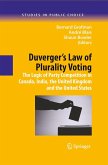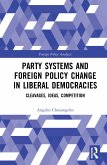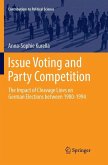This monograph discusses the concept of solidarity. Using Germany as a case study, the book investigates how political actors - political parties in specific - use the term solidarity in their programmatic documents. It maps out the attitudes, features, and behaviors that the parties continuously denote as expressions of solidarity and reconstructs the generalized concept of solidarity held by each party. It categorizes earlier ideas of solidarity into micro and macro perspectives and uses both theoretical and empirical considerations to build a model of solidarity and identify the elements that make solidarity what it is.
Departing from the typical procedure in intellectual history research, this volume takes inspiration from Wittgenstein, starting with the language and tracing it back to its historical setting. Thus, it avoids the trap of speaking of only one meaning of solidarity and allows for more attuned analysis of the differences in understanding the concept. Furthermore, it links the scientific study of the concept of solidarity with research on political competition, and - in broader sense - political theory and party politics research. Closing the gap in scientific coverage of the concept of solidarity, this book will be of interest to students and researchers studying political theory, political sociology, political philosophy, political history, and political parties.
Departing from the typical procedure in intellectual history research, this volume takes inspiration from Wittgenstein, starting with the language and tracing it back to its historical setting. Thus, it avoids the trap of speaking of only one meaning of solidarity and allows for more attuned analysis of the differences in understanding the concept. Furthermore, it links the scientific study of the concept of solidarity with research on political competition, and - in broader sense - political theory and party politics research. Closing the gap in scientific coverage of the concept of solidarity, this book will be of interest to students and researchers studying political theory, political sociology, political philosophy, political history, and political parties.








